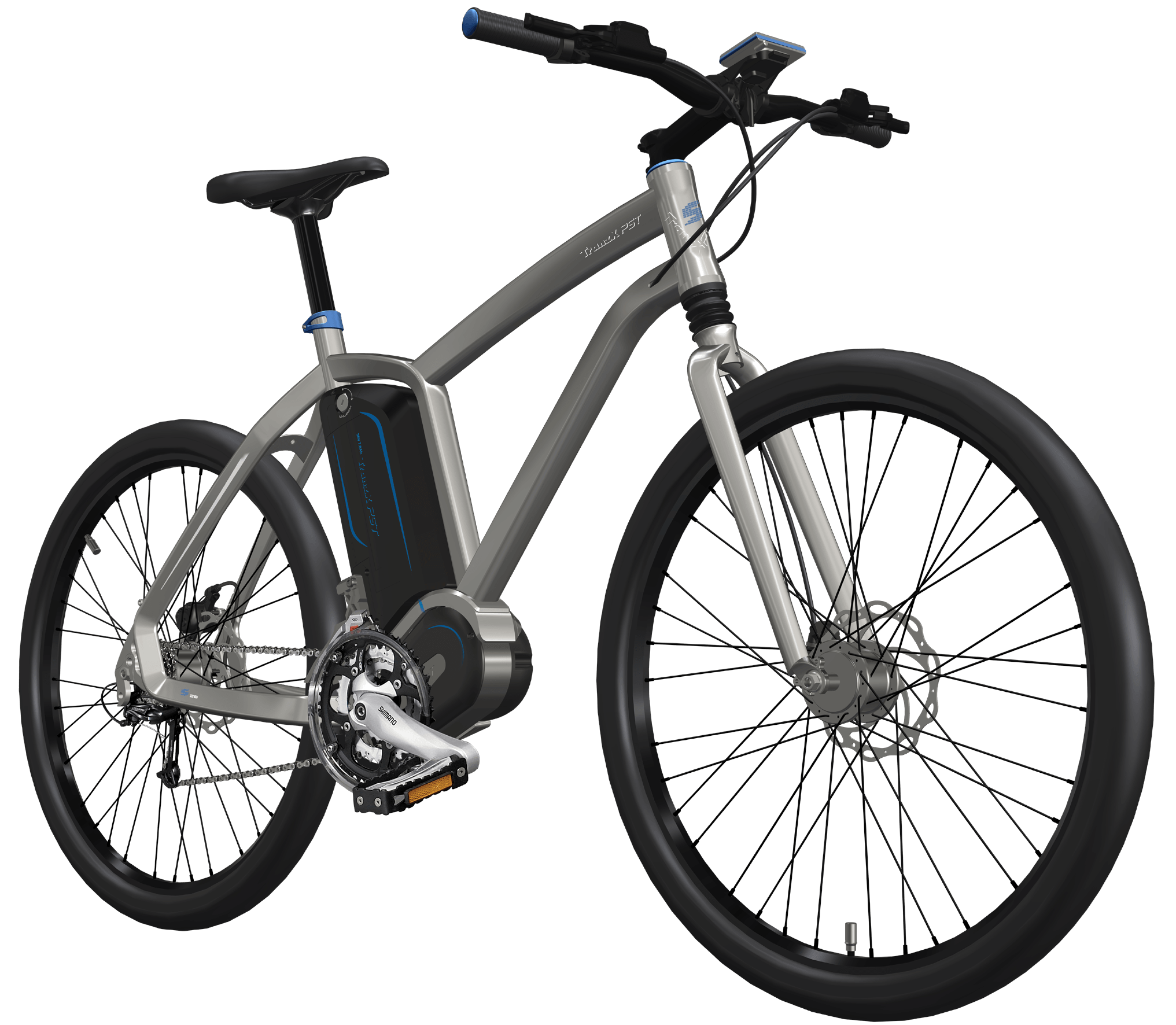

This is the most offensive and derogatory form of ableism. I’m reporting this and I’m tagging you as “Person who hates the disabled” and I am not going to spend even a moment thinking about how mass transit or pedestrian pathways might benefit an individual with mobility issues.
See your comment brings up the big issue I have with the bicycle crowd. I literally cannot ride a bike due to disability , so ride transit right? If my city had a good and reliable transit system i fucking would! But it doesn’t, and it never fucking will. So yes I will give up the car and take transit every day, when pigs fly and my city has a good transit system.
Your way of thinking relies on the belief that transit is adequate in most places, and it sure as hell is not
If my city had a good and reliable transit system
That is what is being argued for.
it never fucking will
Urban landscapes change regularly. US metropolises used to be significantly more mass transit friendly, and it took billions of dollars and millions of man hours to ruin them over the course of decades. You aren’t trapped in a historical moment forever, you’re riding the tide of history just like the rest of us.
Your way of thinking relies on the belief that transit is adequate in most places
My way of thinking relies on the belief that people being reflexively hostile to bicycles degrades future bicycle infrastructure development.
I’m seeing this happen in my home city of Houston, as the current mayor rips out a bunch of newly built bike lanes and bike-share racks because he’d rather the money go towards roadway expansion and policing. $10M/year transferred from bike development to resurfacing roadways of his friends and political allies, so he can tell me that people with mobility issues are best served by River Oaks getting a new coat of varnish.
My city installed bike lanes all over the place, the cyclists don’t use them. They just zip by you on the sidewalk as the bike lane sits empty
My neighborhood doesn’t have that problem. You’ll see regular big rides with dozens - even hundreds - of riders spilling down the protected lanes.
Nobody rides on the sidewalks if they can avoid it. Where do you live that the sidewalks are even maintained? Around here they’re a jagged mess.
Wow, well put my dude.
Please, add /s. I almost believed you.
Lemme strap my wife and kids to my back while I cycle them all to their destinations then head off to work 50km away in the dead of winter!
Bicycle people have no brain, they think everyone lives in California or some shit
Elon’s commenter: “Trains!”
Elon defender: “But what about groceries?”
The comment you replied to: “Bikes!”
You, for some unknowable reason: “But what if I need to travel 50km to work, see bike people have no brain”
You take a train for that, obviously! You just take bike for anything shorter than 2 - 5km, maybe E-bike if you need/want it, Bus and Metro lines should get you anywhere in your city. And before you ask, if all stations are too far to walk, you bike there. If all of these don’t work for you, then you can drive a car on clear roads, because everyone who doesn’t need to drive doesn’t.
“But there are no good bicycle paths/Light rail lines/public transit stations where I live!” Yes, what I said is unrealistic to do in most cities. But we can work towards it, and that starts by getting the people that can use bikes on bike paths, and the people that can take the train on train lines.
50 km commute is wild anywhere, sorry to hear that
WE ONCE HAD STREETCARS LOOK WHAT THEY TOOK FROM US
The Ford Motor Company decided that streetcars weren’t a proper mean of transportation, both for the US people and for the Ford Motor Company shareholders.
Still my favourite form of transport
the virgin bus route weeps and gnashes at the feet of CHAD STREETCAR
I do this with light rail. Takes 6 minutes with slow walking included. It’s pleasant.
Especially in the winter. I live in Norway, so if I use a car I wait for the engine to warm up before driving. (It’s better for the engine.) This and removal of ice and snow easily takes more than 6 minutes. I’m really glad I don’t have a car.
Most of the world is not like Norway and having a car is a necessity not a desire
I completely understand that owning a car can be necessary for someone, but since I’m lucky enough to have access to good public transit a car just doesn’t make any sense for me.
It’s MANY times as expensive, the car requires maintenance/repair and driving requires me to be focused and well rested.
Even with zero sleep, a headache, icy roads, a beer in my stomach and lots of stress, I can safely get where I need to go and I don’t even have to think about parking when I get there. I can even listen to music or a podcast on really low volume with closed eyes. I hope that more people get access to good public transit.
For a society in the long run public transit is also cheaper per passenger than cars. The difference in cost efficiency grows the more densely populated an area is. Statistically most people on Lemmy live in a more densely populated area than me, so you can probably demand this from your government. Y’all would end up saving money.
Ideally we could just fucking walk to a small grocery store instead of having to drive to one. Also would increase jobs with more foot traffic.
Most Americans lost one or both of their feet to the diabeetus
Don’t forget polio, due to anti-vaxxers, it’s making a comeback!
We pay extra to send our kids to a school where all Vax need to be up to date and it’s actually verified. Fucked up its come to this.
The fact people want to get in a car in order to get groceries is beyond me. I’m in Australia, where car brain is also very prevalent, but with many urban places good for walking and PT.
I live close to the shops, and go there multiple times a week because it’s literally right there. Driving and parking? Nah, I’m good.
Friends I have talk about ordering groceries so casually. I go onto these apps and see a 20% markup with delivery fees and I’m like what the fuck.
I live in Houston. We have a grocery store in town that has a big apartment block over the top of it. A friend lives there and he jokes that he’s taking the elevator to the grocery store any time I complain about traffic or parking.
Unfortunately, living in a posh apartment that’s conveniently placed over a nice grocery store means the price of rent is astronomical. So he needs to work as a highly paid attorney in the oil industry to afford to live in a place where he doesn’t need to use a car to get groceries.
Well good on him at least for copping the first adopters price haha, hopefully you can put some stuff back where the city bulldozed to put carparks one day 😅 one apartment at time
The ironic (Or perhaps just interesting) thing is that apartments are supposed to be cheaper living because you don’t have a front or back yard.
It’s vaguely that here, if location is the same apartment is usually cheaper than a free standing house, but apartments are usually better located near public transport and amenities (the whole point), so there’s a slight premium for that.
The American description of apartments almost always coming along in the phrase “luxury condos” is perplexing (other than NYC, it seems)
In fairness, in Melbourne we also do not build many apartments. Far fewer than we should, mostly due to regulations and laws not being airtight around owners corporations, aka body corp, and conflicts of interest where the developer awards a building management contract before selling all the apartments… So people are a bit hesitant to sign up for that and apartment living is still a pretty foreign concept to most
The ironic (Or perhaps just interesting) thing is that apartments are supposed to be cheaper living because you don’t have a front or back yard.
They tend to be more expensive per sqft but smaller than a house you could buy. And there’s no mortgage, so you don’t need a big down payment to move in.
But apartment living in a private system means enriching a landlord first and foremost. That means whatever the actual cost of the space, you’re going to pay extra.
The American description of apartments almost always coming along in the phrase “luxury condos” is perplexing (other than NYC, it seems)
It’s just a marketing gimmick. The term doesn’t have any legal meaning, so everyone uses it to upsell their units.
Some of the dingest places I’ve lived have been billed as “luxury”.
And there’s no mortgage, so you don’t need a big down payment to move in.
I am not quite following you here. What do you mean there’s no mortgage? (Other than if you have the cash, and thus don’t need a loan)
What do you mean there’s no mortgage?
Most people don’t buy a home outright. They take out a long-term low-interest loan (mortgage literally means “pledge till death” although they typically only last 15-30 years) to pay back the house in installments. However, before you can take out this loan, banks will often demand a down payment equal to 20% of the total value of the property. With the high price of housing, this down payment can be substantial - a $500k house requires a $100k down payment.
Renters don’t need to make these large advanced payments in order to get access to a rental unit. You aren’t required to have $100k in the bank before you get your own place.
Ah, you did not mention the renter part haha, I was considering how much each costs to buy
American problems
In fairness, also Australian problems, just to a lesser degree overall (in urban areas)
You walk to the fucking grocery store. I know it sounds wild but we have legs so we can use it.
That doesn’t work if the grocery store is too far to walk or for larger grocery hauls (which often go hand in hand - the further away, the fewer trips you’ll want to make). I’ve been told that some places just genuinely don’t have a grocer within 20min walking distance, because some construction planning apparently prefers huge zones of housing without any kind of commercial usage allowed - no baker, no grocer, no hairstylist, no doctor - making it effectively impossible to have any of those amenities in range.
Obviously, that is a planning issue and ought to be fixed. You’ll have to contend with NIMBYs, but you’d have to do that with any changes anyway. Alternatively or additionally, you could install a usable network of bus lines and trams (though they shouldn’t be run for profit, so it’ll be a tough sell too).
There is also the issue of accessibility, but I think that would be trivial to solve as a side effect: If the streets are less crowded with cars, it’s easier to offer special accommodation for people with limited mobility or anxiety issues.
Bikes are faster than walking and you can attach a trailer. I know a lot of people do that in denmark. Suddenly your cargo capacity is larger than a lot of cars, of course not for weight. As for people with mobility issues, where i live they have a dedicated branch of the public transit for them. On train you can go with wheelchair and if you need extra help in the city they can send you someone with minibuss to help you. Same if youre not in a wheelchair but limited because of your age. Of course these arent cheap to solve but putting out the la fires that were caused by global warming that was in part caused by cars isnt cheap either.
Bikes are faster than walking
…but put me at a higher risk of hurting myself because I’m bloody clumsy (impaired balance and coordination). Joke aside, good point.
As for people with mobility issues, where i live they have a dedicated branch of the public transit for them. On train you can go with wheelchair and if you need extra help in the city they can send you someone with minibuss to help you. Same if youre not in a wheelchair but limited because of your age.
That is awesome!
Of course these arent cheap to solve
In the short term, no, it’s probably an expensive project. But in the long term, even aside from environmental impact, I think it would save money.
Just not for the car manufacturers… Those poor, poor billionaires will need to find a different income I guess.
These “take a train” crowd think that everyone in every city and every town has a subway system or even a functional bus system. It’s like the bicycle people who insist that I don’t need a car, I can just strap my kids to my back in winter and drop them off at school before cycling to work and stopping for errands and groceries on the way home! So easy! /s
If I didn’t NEED a car I wouldn’t drive one, and that applies to most people. But for some reason everyone on here is a 20something city kid with easy access to public transit
“These ‘take a train’ crowd” tend to be also the ones saying “build more trains, light rail, and tram lines, also bike lanes” but who are prevented from making progress at every turn by oil and motor lobbyists. They are very aware of the limitations but generally encourage it because it’s a good thing to do.
Many cities at one time had trolley service which did local point to point connection. Then they were forced out because there was more profit in growing car dependency.
I bought the red car so I could disssss…mantle it.
Capitalist government when public transport (a public service) is not making profits
Seems more like politicians were
bribedlobbied to cut funding by car makers than they were counting coins and said we’d get more (as a government) if everyone just drove from home.
There were forced out because they had to pay for the road surface but vehicles could use it for free and cause damage. They also would block the trolley because people have always been assholes.
More importantly they had contracts with the cities with set fares and the cities wouldn’t let them increase the fares so they went bankrupt. source
Fun fact: this is the premise of Who Framed Roger Rabbit
Yeah right, let me just walk to the supermarket XD
is back in 25 minutes with bag of grocceries
:o
“I don’t want to carry bags all that way!”
Here. Take a backpack.
the bicycle in question:
Shopping trolleys have grown in popularity in Sweden in recent years, sort of like a rolling suitcase but with more space, specifically made for grocery shopping.
Personally, I use a pannier basket on my bike though. Best way to shop for sure
In Austrian cities we see an increase of cargo bikes
Car drivers hate them, but in the city you’re much faster with a bike anyway
I love shopping trolleys… But avoid the ones with multiple wheels for climbing stairs, they’re loud as hell on pavement.
no im obese and entirely brainwashed that walking is detriemntal to my health or smth idfk
societal constraints hold back the minds of those who are lazy to change
:D
1: I’ve taken the metro to get groceries loads of times
2: Trams
Trams are the shit
deleted by creator
why would I take a train when the store is 3 minutes walking diatance
That’s literally communism and also the cause of everything wrong with the economy, that’s why!
Driving is for free people, walking is for slaves! /s
My township is going through this
Vandalism, threats, people screaming in public, and so on; all afraid that the new area being built having stores within walking distance is a government conspiracy to restrict people’s ability to leave
…all the existing parts of town have grocers and shops within walking distance
Oh, they’re putting up road barriers? No? Are they taking away cars? Also no? Do the new shops create so much traffic that it’s just not feasible to leave? Also no?
Then how the hell are they restricting anything?
conspiracy
Oh right. I forgot what type of people we’re dealing with.
My condolences, best wishes and hopefully justified congratulations!
The best is when the grocery stores are so close that you don’t need a car or a train. Japan does it right. You can always walk to at least one grocery store.
True enough for urban areas.
There’s also a lot of more rural areas in Japan where the only thing in walking distance from a house is a bus stop, and it might be a bit of a long walk.
I’m sure there are more remote places, but I haven’t been to those places.
I think the important part is that the Japan residents know it is possible once the town or city grows vs here in North America where people cannot fanthom the idea of not having a car (or in the US and Canada 1 car per person on the home).
I am privileged since I have been able to work from home recently, but it is so clear that you don’t need a car if non-work things were closer (better zoning and design roads for people instead of cars). Once you put 1k miles per year on your car instead of 10-20k and your quality of life is much higher due to no stress from having to commute it starts to radicalize you against into the dumb shit we do in the name of growth and profit (not violently but still makes you feel cheated out of a better life).
It’s not only Japan, I dare to say most countries have grocery stores within walkable distances.
It sure was great. We don’t have that at all in the US.
Greg is gonna shit on the floor when he’ll learn that happens everywhere in Europe.
In socialist Europe, I walk to the groceries, comrade… I take 15min train ride from home to work in the city center… and I wait no longer than 5 minutes on train because that’s its frequency… but I have no car…
Damn it must suck to live in such terrible conditions
Don’t a decent amount of European businesses even do delivery in back by train?
Probably, I mean it makes sense. The few times I’ve been in Europe, in the many cities I’ve been, the public transit was good.
It’s actually called zoning reform. Bring back neighborhood grocery stores you can walk to. Before I experienced it, I never thought about how convenient it is to walk less than 5 minutes to a grocery store almost every day and do little grocery trips instead of bit multi-bag struggles.
Bring back neighborhood grocery stores you can walk to.
This is actually probably more a federal antitrust/competition law thing than a local zoning thing. Otherwise it wouldn’t have happened nationwide. I found this article to be pretty persuasive:
Food deserts are not an inevitable consequence of poverty or low population density, and they didn’t materialize around the country for no reason. Something happened. That something was a specific federal policy change in the 1980s. It was supposed to reward the biggest retail chains for their efficiency. Instead, it devastated poor and rural communities by pushing out grocery stores and inflating the cost of food. Food deserts will not go away until that mistake is reversed.
. . .
Congress responded in 1936 by passing the Robinson-Patman Act. The law essentially bans price discrimination, making it illegal for suppliers to offer preferential deals and for retailers to demand them. It does, however, allow businesses to pass along legitimate savings. If it truly costs less to sell a product by the truckload rather than by the case, for example, then suppliers can adjust their prices accordingly—just so long as every retailer who buys by the truckload gets the same discount.
. . .
During the decades when Robinson-Patman was enforced—part of the broader mid-century regime of vigorous antitrust—the grocery sector was highly competitive, with a wide range of stores vying for shoppers and a roughly equal balance of chains and independents. In 1954, the eight largest supermarket chains captured 25 percent of grocery sales. That statistic was virtually identical in 1982, although the specific companies on top had changed. As they had for decades, Americans in the early 1980s did more than half their grocery shopping at independent stores, including both single-location businesses and small, locally owned chains. Local grocers thrived alongside large, publicly traded companies such as Kroger and Safeway.
With discriminatory pricing outlawed, competition shifted onto other, healthier fronts. National chains scrambled to keep up with independents’ innovations, which included the first modern self-service supermarkets, and later, automatic doors, shopping carts, and loyalty programs. Meanwhile, independents worked to match the chains’ efficiency by forming wholesale cooperatives, which allowed them to buy goods in bulk and operate distribution systems on par with those of Kroger and A&P. A 1965 federal study that tracked grocery prices across multiple cities for a year found that large independent grocers were less than 1 percent more expensive than the big chains. The Robinson-Patman Act, in short, appears to have worked as intended throughout the mid-20th century.
Then it was abandoned. In the 1980s, convinced that tough antitrust enforcement was holding back American business, the Reagan administration set about dismantling it. The Robinson-Patman Act remained on the books, but the new regime saw it as an economically illiterate handout to inefficient small businesses. And so the government simply stopped enforcing it.
That move tipped the retail market in favor of the largest chains, who could once again wield their leverage over suppliers, just as A&P had done in the 1930s. Walmart was the first to fully grasp the implications of the new legal terrain. . . . Kroger, Safeway, and other supermarket chains followed suit. . . . Then, in the 1990s, they embarked on a merger spree. In just two years, Safeway acquired Vons and Dominick’s, while Fred Meyer absorbed Ralphs, Smith’s, and Quality Food Centers, before being swallowed by Kroger. The suspension of the Robinson-Patman Act had created an imperative to scale up.
A massive die-off of independent retailers followed. Squeezed by the big chains, suppliers were forced to offset their losses by raising prices for smaller retailers, creating a “waterbed effect” that amplified the disparity. Price discrimination spread beyond groceries, hobbling bookstores, pharmacies, and many other local businesses. From 1982 to 2017, the market share of independent retailers shrank from 53 percent to 22 percent.
The whole thing is worth reading.
Genuinely high quality post.
And yet another Reagan roast.
It’s definitely both.
If you can’t have smaller grocery stores in neighborhoods due to zoning laws, what will be left is bigger stores which are going to be generally operated by large corporations.
That would only explain the phenomenon in urban areas that actually have zoning. Rural areas are suffering from the same thing, but don’t have zoning restrictions, so obviously that points to another cause.
Wow, one more thing to thank Reagan for that I was unaware of. Thank you for the link.
Another way that Reagan really shit the bed, huh
It sounds like he knew what he was doing, and it worked as intended. “Holding back American businesses” indeed.
Thanks for sharing the article! It was very informative. I’m definitely going to remember it as the Robert pattinson law though.
In the US you’d be arrested for unlawful walking in a car only area, or something.
Would probably help with remembering reusable bags too. Instead of driving there and being like ‘oh no!’ you’re walking, and would realize you’re not carrying them with you.
I’m fine going to the supermarket for a medium shop every week or two but being able to walk to get milk for my breakfast (especially if I only realised I’d ran out in the morning!) was so nice.
Now I don’t live in town any more, it’s an 11-mile drive to the nearest shop so it’s more like a once a month shopping trip. Fresh fruit and veg? What’s that?
Trains also work to get other traffic off the road too. It solves congestion for everybody, not just you. That way when you do have to drive a car, there are fewer of them on the road.
















